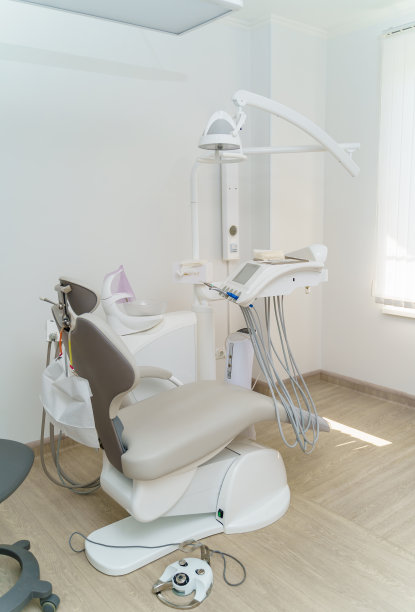Summary: Dental implantation is a transformative solution for those facing tooth loss, promising both functionality and aesthetics. However, ensuring optimal results and safety involves an array of essential guidelines and precautions. This article outlines four critical aspects to consider: understanding the procedure and its implications, evaluating the physical readiness of the patient, assessing the skill and experience of the dental professional, and being aware of aftercare requirements. Each of these areas plays a significant role in the success of dental implants and ensures that patients can achieve the best outcomes for their oral health and well-being.
1. Understand the Procedure and Its Implications

Before embarking on the journey of dental implantation, it is crucial for patients to comprehend the entire procedure. Dental implants involve inserting a titanium post into the jawbone, serving as a replacement root for missing teeth. This process requires oral surgery and an initial consultation with a dental professional to discuss the patient’s overall health and dental history.
In addition to understanding the mechanics of the procedure, patients should be aware of the potential risks and complications associated with dental implants. It is essential to discuss these factors with the dentist, including issues like infection, nerve damage, and implant failure. Educating oneself about these risks and listening to the dentist’s explanations can promote informed consent and overall comfort with the decision.
Furthermore, patients must consider the time commitment involved in the process. Dental implants typically require months for the osseointegration process, where the bone fuses with the implant. Patients should realistically assess their timelines and expectations before deciding to go through with the procedure.
2. Evaluate Patients Physical Readiness
Assessing the physical readiness of potential candidates for dental implants is essential for successful outcomes. A comprehensive dental evaluation, including X-rays and possibly 3D imaging, allows the dentist to determine the quality and quantity of the jawbone. Those with insufficient bone density may need bone grafting procedures before they can receive implants.
Moreover, a patient’s overall health significantly impacts their candidacy for implantation. Medical conditions like diabetes, smoking habits, and autoimmune disorders can complicate the healing process and increase the risk of complications. Consulting with a healthcare provider about pre-existing conditions can help address these issues proactively.
A detailed examination of the patient’s oral hygiene practices is also vital. Candidates must commit to maintaining excellent oral hygiene to promote healing post-surgery and ensure the longevity of their implants. A strong foundational care routine is imperative for successful integration and optimal health outcomes.
3. Assess the Skill and Experience of the Dentist
The choice of dental professional can greatly influence the success of dental implantation. When evaluating a dentist, it is crucial to consider their qualifications and experience specifically in implant dentistry. Credentials, certifications, and prior work experience can give patients insight into the dentists expertise.
Additionally, seeking reviews and testimonials from past patients can provide valuable perspectives about the dentist’s proficiency and care standards. Understanding how the practitioner operates within the clinical environment allows patients to gauge their comfort level with the provider.
Furthermore, a consultation appointment can serve as an opportunity to ask questions and clarify any doubts. It’s vital for patients to feel at ease with their dentist, as open communication is key to feeling supported throughout the dental implantation process.
4. Awareness of Aftercare Requirements
Post-operative care is crucial in ensuring the success and longevity of dental implants. After the procedure, patients should closely follow the aftercare instructions provided by their dental professional. This can include managing pain, following dietary restrictions, and taking prescribed medications to promote healing.
Regular follow-up appointments are essential to monitor the healing process and to ensure that the implants are integrating properly with the jawbone. These visits also allow the dentist to address any concerns or complications that may arise during recovery.
Moreover, maintaining an excellent oral hygiene routine post-implantation is fundamental. Patients must diligently brush and floss around the implant area to prevent infections and to promote long-term success. Being aware of these aftercare requirements helps patients maintain their investment in their oral health.
Summary:
The journey of undergoing dental implantation is one that requires careful consideration and awareness of various guidelines and precautions. By understanding the procedure, evaluating physical readiness, assessing the skill of the dental professional, and being informed about aftercare, patients can significantly increase the likelihood of successful outcomes.
This article is compiled by Vickong Dental and the content is for reference only.
Vickong Dental
Vickong Dental is a large medical group established in Hong Kong in 2008 by professors from well-known medical universities in Guangdong and Hong Kong, as well as medical doctors from key national '985' universities (including Master's supervisors and senior professors). The chain of branches brings together expert dentists with PhDs and Master's degrees from Hong Kong and Mainland China, committed to providing high-quality dental treatment.
"Vickong Dental Practices the University Motto of 'Healing and Serving Society,' with a Stable Operation for Sixteen Years. It Has Been honored with Hong Kong Enterprise Leaders's Choice,' and is a Global Trusted Implant Center for the Nobel Implant System. Recommended by Hong Kong Metro Broadcast and Guangdong Television, it Serves Customers from Over Thirty Countries and Regions, Gaining the Trust and Favor of Citizens from the Guangdong-Hong Kong-Macau Greater Bay Area and Surrounding Cities.

Thousands of customers' unanimous praise
The most recognized and highly recommended dental service by customers in the Guangdong-Hong Kong-Macau Greater Bay Area
We Ensure You Receive Detailed Care and Attention Here
Hong Kong standards, Shenzhen prices, Your Trusted English-speaking dentists

Vickong Dental Medical-Grade Instrument Disinfection Process
Vickong Dental Medical-Grade Instrument Disinfection Process

Vickong Dental Chain: A Warm and Comfortable Environment for Treatment






Appointment Hours

Q&A
Why choose Vickong Dental?
Vickong Dental practices the university motto 「Medicine to Benefit Society」, with each branch bringing together highly qualified dentists with doctoral and master’s degrees from Hong Kong and the Mainland, and has maintained seventeen years of steady operation。Recipient of 「2024 Hong Kong Enterprise Leaders Brand」, 「2025 Hong Kong Enterprise Leaders Brand」, a Nobel Biocare Global Trusted Implant Center, and a brand recommended by Metro Radio Hong Kong and Guangdong TV。
To date, we have served customers from more than thirty countries and regions,earning exceptionally high word-of-mouth recognition and trusted recommendations from residents across the Guangdong-Hong Kong-Macao Greater Bay Area and surrounding cities
We have eight major branches in Zhuhai、Shenzhen,and a consultation and service assurance center in Hong Kong,so you can book a free consultation at any time for any questions,which is very reassuring.
If I do not accept the quotation after the CT scan, will I be charged??
No! As long as the actual treatment has not started, you will not be charged any fees.
Will there be any additional charges during the treatment process?
No, there won’t be any additional charges. Before treatment begins, we will clearly explain the treatment plan and its corresponding fees. Only after the patient agrees and signs the consent form will we proceed with the dental service.
Can I pay in Hong Kong dollars?
Yes. Vickong Dental accepts payment in Hong Kong dollars. The amount will be converted based on the exchange rate of the day, and the applicable rate will be clearly communicated to you in advance.
Can I reschedule my appointment at any time?
Yes. Please contact us via **WeChat** or **WhatsApp** as early as possible, providing your original appointment time and details, along with your preferred new date and time slot for rescheduling.













